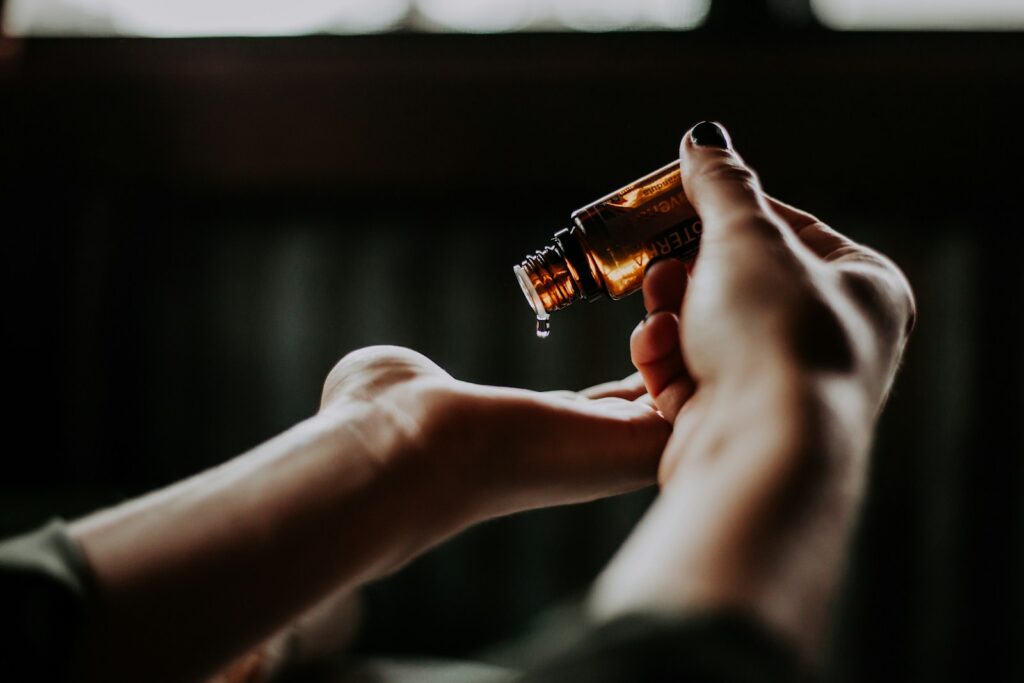Sleep is vital for your hair health, impacting cellular repair, hormonal balance, and stress management. During sleep, your body regenerates cells and synthesizes proteins that are crucial for keratin production. This process strengthens hair follicles and fosters growth. Quality sleep also enhances melatonin production, helping regulate hormones essential for hair vitality. Additionally, good sleep reduces stress and inflammation, which are known contributors to hair loss. Enhanced blood circulation during sleep nourishes your scalp, supporting stronger hair. Prioritizing consistent sleep can significantly improve your hair’s condition and resilience; there’s much more to discover about how you can optimize this.
Importance of Cellular Repair
Sleep plays a crucial role in cellular repair, which is vital for maintaining healthy hair. During your sleep cycles, your body engages in cellular regeneration processes that significantly impact hair follicle repair. This repair mechanism is essential for sustaining hair health and preventing hair loss.
When you sleep, your body increases protein synthesis, a process critical for producing keratin, the primary structural protein in hair. Additionally, sleep stimulates the release of growth hormone, further enhancing your body’s ability to repair and regenerate cells. Inadequate sleep can disrupt these processes, leading to weakened hair follicles and potential hair thinning.
Moreover, proper sleep allows for the regulation of various biological functions that support healthy hair growth. Disruptions to your sleep cycles can result in increased stress levels, negatively affecting hair health. Prioritizing sufficient sleep not only supports your overall well-being but also plays a direct role in ensuring your hair remains strong and healthy. To promote optimal cellular repair, aim for consistent, quality sleep each night, allowing your body to perform the necessary functions that contribute to hair follicle health and vitality.
Hormonal Balance and Hair Growth

Hormonal balance plays a pivotal role in hair growth and overall scalp health. When you experience hormonal fluctuations, it can significantly affect your hair’s health, leading to thinning or loss. Quality sleep is essential for maintaining this balance, as it directly influences your sleep cycles, which in turn impacts hormonal regulation.
During deep sleep, your body enhances melatonin production, a hormone crucial for maintaining hair health. Melatonin not only promotes hair restoration but also helps regulate other growth hormones that are vital for hair follicles. When you don’t get enough restorative sleep, the disruption in these hormones can hinder hair growth and exacerbate hair loss.
Moreover, consistent sleep patterns can support the natural cycle of hair growth by ensuring that your body has ample time to produce and regulate the necessary hormones. By prioritizing good sleep hygiene, you can foster an environment conducive to hair restoration and optimal scalp health. Thus, understanding and managing your sleep cycles is essential for maintaining hormonal balance, ultimately promoting healthier, fuller hair.
Sleep’s Role in Stress Reduction
Quality rest is crucial for managing stress levels, which can significantly impact hair health. When you prioritize sleep, you unlock numerous sleep benefits that contribute to effective stress management. Poor sleep can heighten cortisol levels, leading to increased stress and potential hair loss. By adopting relaxation techniques, like deep breathing or progressive muscle relaxation, you can enhance the quality of your rest.
Incorporating mindfulness practices into your daily routine also plays a vital role. Activities such as meditation or gentle yoga can help calm your mind, making it easier to fall asleep and stay asleep. This, in turn, promotes a healthier stress response, which is essential for maintaining vibrant hair.
Moreover, adhering to sleep hygiene principles—like maintaining a consistent sleep schedule, creating a comfortable sleep environment, and limiting screen time before bed—can further enhance your sleep quality. The better your sleep hygiene, the more effectively you can manage stress. Ultimately, focusing on these areas not only fosters overall well-being but also supports your hair health, allowing you to enjoy the full benefits of quality sleep.
Enhanced Blood Circulation
Optimal blood circulation is essential for maintaining healthy hair, as it delivers vital nutrients and oxygen to hair follicles. During sleep, your body enters a state of relaxation that promotes enhanced blood flow. This increased circulation is crucial for effective nutrient delivery, ensuring that essential vitamins and minerals reach the hair follicles. When follicles receive adequate nourishment, they’re better able to support hair growth and maintain hair vitality. Using a shampoo for hair growth can further aid in providing your hair follicles with nutrients needed for stronger and healthier hair.
Sleep also optimizes oxygen supply to the scalp, which is vital for cellular metabolism. Healthy, oxygen-rich blood supports the growth cycle of hair, allowing for stronger strands and reduced breakage. Conversely, poor circulation can lead to insufficient follicle nourishment, potentially causing thinning hair or slower growth rates.
You can enhance your blood circulation during sleep by maintaining a consistent sleep schedule and creating a restful environment. Implementing practices like regular physical activity during the day can also support overall blood flow. Prioritizing sleep not only fosters emotional well-being but significantly contributes to your hair’s health by ensuring that your follicles receive the necessary nutrients and oxygen for optimal functioning.
Scalp Health Maintenance

Maintaining scalp health is crucial for promoting strong and vibrant hair. A well-cared-for scalp fosters an optimal environment for hair growth. Regular scalp massage enhances circulation, ensuring that nutrients are effectively delivered to hair follicles. This practice not only stimulates blood flow but also aids in the absorption of essential nutrients, enhancing overall health.
Incorporating oil treatments into your routine can further support scalp health. Oils rich in vitamins and fatty acids provide moisture, improve hydration, and facilitate nutrient absorption. These treatments can also help maintain appropriate temperature regulation, preventing overheating or excessive dryness.
Scalp hygiene cannot be overlooked. Keep your scalp clean by using gentle, pH-balanced shampoos that remove buildup without stripping natural oils. This helps prevent irritation and promotes a healthy microbial balance, essential for scalp vitality.
Lastly, be attentive to your scalp’s condition. Look for signs of inflammation or irritation, which can impact hair health. By prioritizing scalp health maintenance through these practices, you create the ideal conditions for robust and resilient hair growth. Remember, a healthy scalp is the foundation for vibrant hair.
Preventing Hair Damage
A healthy scalp is integral not just for growth but also for preventing hair damage. You need to prioritize your sleep quality, as it plays a crucial role in overall hair care. A consistent nighttime routine helps regulate your body’s internal clock, enhancing restorative processes that protect your hair.
During sleep, your body undergoes essential repairs, and this includes delivering vital hair nutrition. Hormonal balance achieved through adequate rest is key; it affects hair growth and prevents breakage. Aim for 7-9 hours of uninterrupted beauty sleep to allow your body to regenerate cells and maintain optimal scalp health.
Moreover, consider the environment in which you sleep. Use a silk or satin pillowcase to minimize friction, reducing the likelihood of hair damage. Additionally, avoid tight hairstyles before bed, as these can stress your hair follicles.
Incorporating scalp massages into your nightly routine can also enhance circulation, promoting a healthier environment for hair growth. By prioritizing sleep and adjusting your nighttime habits, you can significantly lower the risk of damage, ensuring your hair remains strong and vibrant.
Reducing Inflammation Effects
When it comes to promoting hair health, reducing inflammation is crucial. Chronic inflammation can negatively impact your hair follicles, leading to thinning and loss. Sleep duration plays a significant role in inflammation reduction as it affects your body’s immune response. During deep sleep, your body undergoes vital repair processes that mitigate oxidative stress and promote cellular regeneration.
A lack of adequate sleep can trigger an increase in inflammatory markers, which may hinder hair growth and overall scalp health. By ensuring you get sufficient restorative sleep, you’re helping to regulate these inflammatory responses, optimizing your hair’s health.
In addition, quality sleep helps balance hormones, further reducing factors that may cause inflammation. When your body is well-rested, it’s more equipped to manage stress, which is another contributor to increased inflammation.
To support your hair follicles and foster an environment conducive to growth, aim for a consistent sleep routine. Prioritizing quality sleep can be a simple yet effective strategy for maintaining healthy hair by reducing inflammation and promoting overall scalp vitality. Remember, every night of restorative sleep counts toward a healthier mane.
Conclusion
In the grand orchestra of health, sleep serves as the conductor, ensuring that every section, including your hair, performs harmoniously. By prioritizing quality rest, you foster cellular repair, maintain hormonal balance, and enhance blood circulation—all vital for robust hair growth. Remember, just as a garden flourishes with the right care, so too does your hair thrive when you invest in restorative sleep. Embrace this essential element, and watch your hair transform into a vibrant symbol of wellness.


